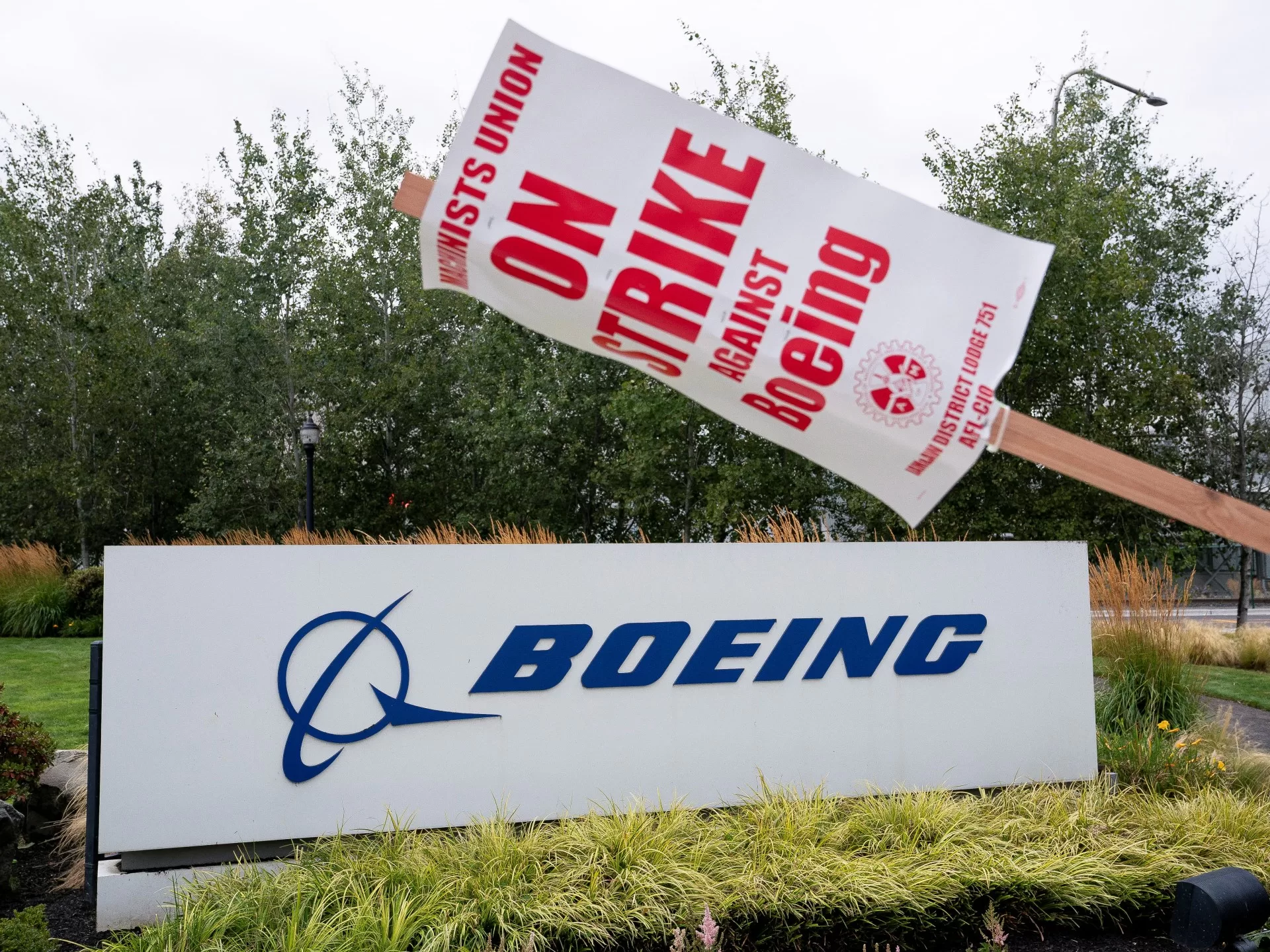The strike is costing Boeing $1bn a month, making it critical for the firm to end the work stoppage.
United States-based plane maker Boeing will cut 17,000 jobs, or 10 percent of its global workforce, delay first delivery of its 777X jet by a year and announced substantial new losses in its defence business as a monthlong strike batters company finances, CEO Kelly Ortberg has said.
On Friday, in a message to employees, Ortberg said the company must reset its workforce levels “to align with our financial reality” after a strike by 33,000 US West Coast workers shuttered production of its 737 MAX, 767 and 777 jets.
“We reset our workforce levels to align with our financial reality and to a more focused set of priorities. Over the coming months, we are planning to reduce the size of our total workforce by roughly 10 percent. These reductions will include executives, managers and employees,” Ortberg’s message said.
Boeing shares fell 2.3 percent in after-market trading.
Ortberg also said Boeing has notified customers that the company now expects the first delivery of its 777X in 2026 due to the challenges it has faced in development, as well as the flight-test pause and ongoing work stoppage.
Boeing had already faced issues with the certification of the 777X that had significantly delayed the plane’s launch.
Boeing, which reports its third-quarter earnings on October 23, said in a separate release it now expects revenue of $17.8bn, a loss per share of $9.97, and negative operating cash flow of $1.3bn.
“While our business is facing near-term challenges, we are making important strategic decisions for our future and have a clear view on the work we must do to restore our company,” Ortberg added in a statement.
Boeing will end its 767 freighter programme in 2027 when it completes and delivers the remaining 29 planes ordered but said production for the KC-46A tanker will continue.
Ratings concern
Reaching a deal to end the work stoppage is critical for Boeing. Ratings agency S&P estimated the strike is costing it $1bn a month and it is at risk of losing its prized investment-grade credit rating. Earlier this week, talks hit an impasse, and Boeing withdrew its pay offer to about 33,000 US factory workers, saying the union did not consider its proposals seriously after two days of talks.
The company said, in light of the job cuts, it would end a furlough programme for salaried employees announced in September.
Even before the strike began on September 13, the company had been burning cash as it struggled to recover from a January midair panel blowout on a new plane that exposed weak safety protocols and spurred US regulators to curb its production.
The Reuters news agency reported this week Boeing is examining options to raise billions of dollars through a sale of stock and equity-like securities.
The company has about $60bn in debt and posted operating cash flow losses of more than $7bn for the first half of 2024.
Analysts estimate that Boeing would need to raise between $10bn and $15bn to maintain its ratings, which are now one notch above junk, or non-investment-grade and have a higher risk of default.
